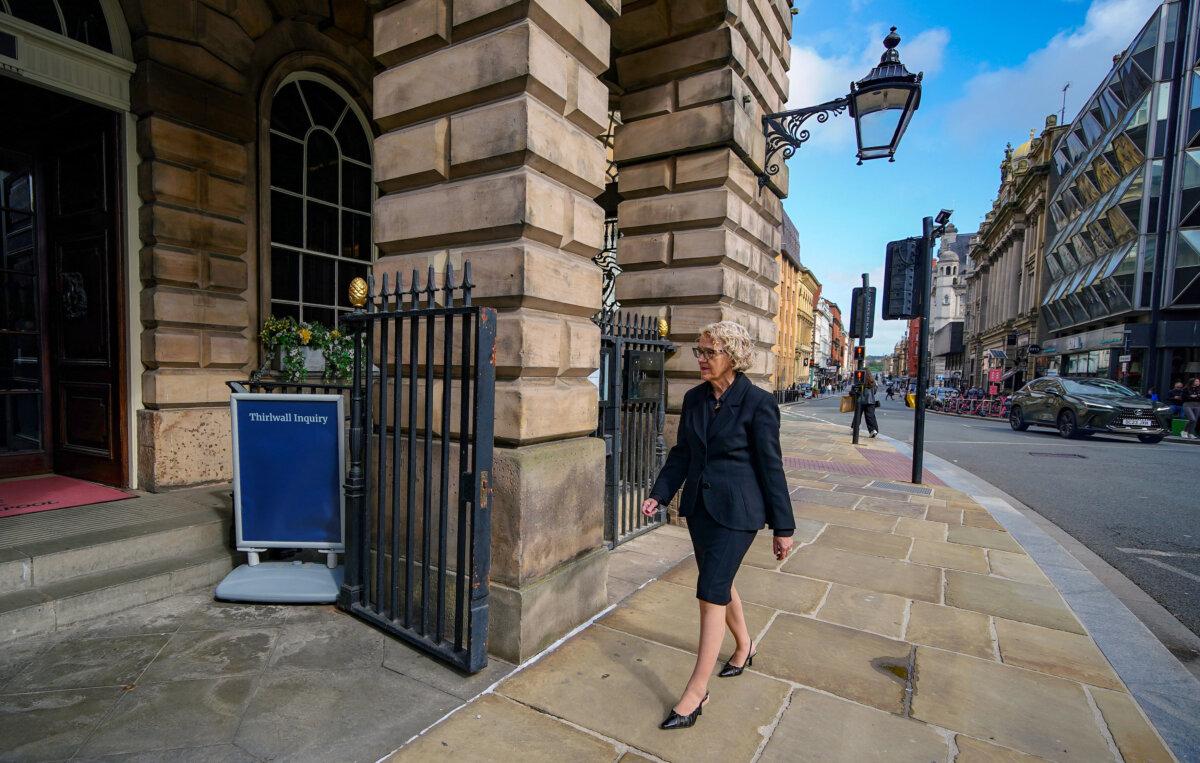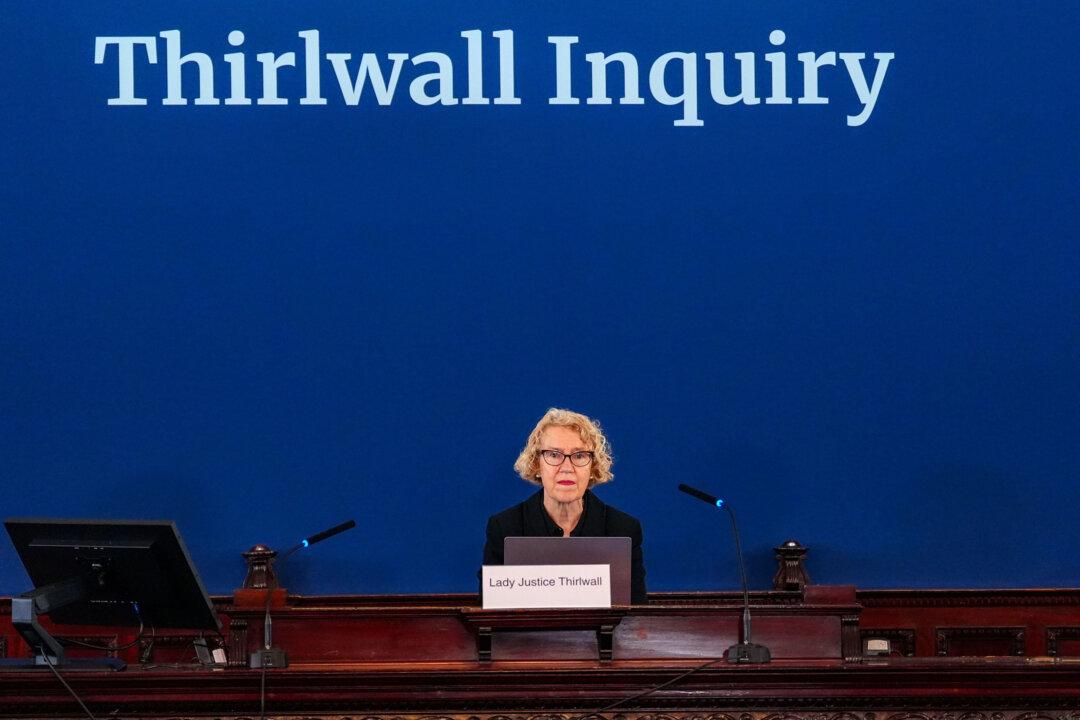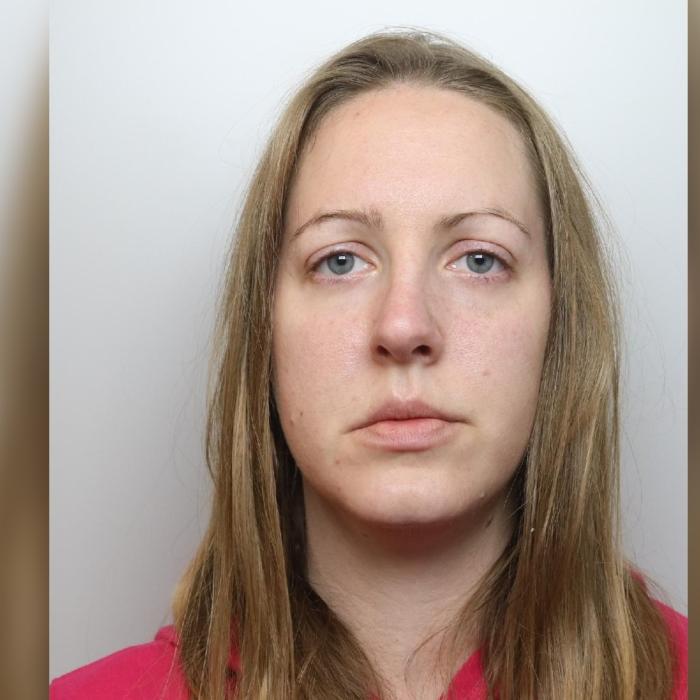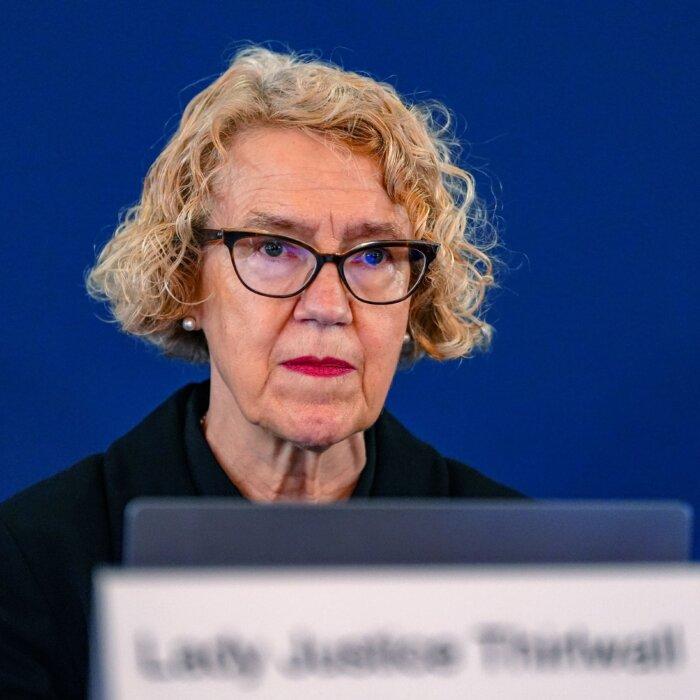A senior doctor has told the Lucy Letby public inquiry that she dismissed the thought of a poisoner on the loose at the neonatal unit where the nurse worked as “so fantastical” it could not be true.
Giving evidence on Monday, the consultant paediatrician, who cannot be identified for legal reasons, told the Thirlwall Inquiry into events surrounding Letby’s convictions that she “deeply regrets” rejecting the idea that someone had deliberately harmed the baby known as Child F after blood test results revealed abnormally high levels of insulin.
Letby, 34, from Hereford, is serving 15 whole-life orders after being convicted at Manchester Crown Court of murdering seven infants and attempting to murder seven others, with two attempts on one of her victims, between June 2015 and June 2016.
She was found guilty of murdering Child F in early August 2015 by giving him insulin. She was also convicted of murdering his twin brother, Child E, and three other infants in June 2015.
Letby was also found guilty of the murders of two of a set of triplets in June 2016. All of the premature babies died on the Countess of Chester Hospital’s neonatal unit, where Letby worked.
There has been a growing clamour to reexamine the case against Letby, with a number of medical and legal professionals raising concerns that her conviction is unsafe. The inquiry, sitting in Liverpool Town Hall, was not established to appraise the verdicts of the court, but to examine the role of the NHS and what lessons can be learned from the case.
‘Fantastical and Unlikely’
ZA told the hearing: “We checked it [insulin] was not prescribed.“We checked that no-one else on the unit was on insulin, thinking it was done accidentally, but the idea that someone could be doing it deliberately was so fantastical and unlikely that it could not possibly have happened.
“At the time I dismissed the idea of someone deliberately administering insulin because it seemed so impossible but I deeply regret that is how I interpreted things, both for Child E and F’s parents and the parents of babies that happened subsequently.”
The doctor was asked by counsel to the inquiry Nicholas de la Poer, KC if the case of child serial killer nurse Beverley Allitt had not potentially crossed her mind as a “real life explanation.”
She replied: “No, I don’t know why not.
“I had sort of grown up with the knowledge of Beverley Allitt and what she did, and also later Harold Shipman, but it just never occurred to me that this was something that happened on my ward with the patients I was looking after.”
No action was taken as a result of the test results, which ZA said she now thought was “the wrong decision.”
Richard Baker, KC, representing families of the babies who died, suggested to ZA that she did not need to think it was an attempted murder to take action and it was a “serious safety issue” however the insulin got there.
The doctor agreed that she should have informed Child F’s parents about the hypoglycaemia and the abnormal blood results.
By March 2016, the inquiry heard, she said she considered it possible that Letby may be harming babies, although she did not link the concerns to Child F’s blood test results until more than a year later when police had already been called in by the hospital.

‘Lack of Another Explanation’
ZA said: “It was a general feeling of unease at the sudden, unexpected, and unexplained nature of the events and the correlation with Letby being present but nobody sort of knew exactly what she was doing.“It was that sort of uncomfortable association at that point and the lack of another plausible explanation.”
Following the deaths of two of the triplets, Child O and P, in June 2016, ZA felt the association “had gone far beyond coincidence and her working pattern” and that Letby may be involved in some way, “either by unconscious incompetence or by a deliberate act.”
Those concerns were made clear by the consultants to the hospital’s senior management, she said.
Letby was then moved from the neonatal unit to non-patient duties as the hospital commissioned an independent external review into the spike in the expected mortality rate.
ZA said, “It seemed initially they didn’t want to listen to our concerns and then over time as we became more persistent it seemed that they wanted us to be quiet and shut up about it.”
She recalled “very clearly” a meeting on Jan. 26, 2017 between the consultants and the executive directors group.
She told the inquiry: “There was a very adversarial atmosphere from the moment we first entered the room.
“The senior management, all of them, seemed to be speaking with the same tone and it very much seemed like we had been called into the headmaster’s office like naughty schoolchildren.
“Tony Chambers [the chief executive] said he was ‘drawing a line and we were not to cross it’ and it was said in quite a threatening tone.
“I very much took it to mean that if we continued to carry on raising our concerns then my job would be at risk.”
ZA said that when the doctors raised concerns, they were “initially ignored then later actively bullied and victimised.”
“I think there was a false narrative developing that [paediatric services lead] Dr. [Ravi] Jayaram and [neonatal lead] Dr. [Stephen] Brearey were ringleaders rather than we were all professionals who had come to the same conclusion.
“Also I had some soul searching about at what point I would be happy to stop raising concerns and stop pushing.
“I decided that the only point I would feel that I could sleep at night was that if Lucy Letby was not working as a nurse or in a similar position … and even if I lost my job we should persist with this until we reached this outcome.”
Cheshire Police were not brought in to investigate the increased mortality rate until May 2017 and Letby remained at the hospital until her first arrest in July 2018.
Letby has always maintained her innocence, but has been denied leave to appeal by four judges. Her new lawyer, Mark McDonald, told the BBC recently he plans to take her case to the Criminal Cases Review Commission, which investigates alleged miscarriages of justice.
The inquiry is expected to sit until early next year, with findings published by late autumn 2025.







